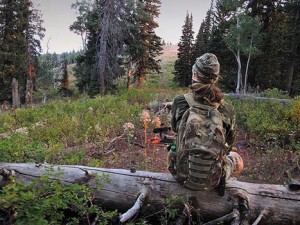Hunters versus Non-Hunters
Over the past several years I’ve had the privilege of teaching hundreds of people basic archery. Due to the nature of the organization I work for, the majority of my students are left-wing oriented people in their early twenties. Most have never hunted before, and some are even ardent anti-hunters! As you can guess I’ve had quite a few passionate conversations over the years.
As it turns out, the majority of the anti-hunters are regular meat-eaters. This obviously adds a lot of weight to my arguments, the most effective being, “If you eat meat then you’re directly responsible for the killing of hundreds of animals; you just hire someone else doing the dirty work for you. Hunters, on the other hand, are directly responsible for their meat.” This point usually brings the offended into the realm of reality.
The Anti-Hunting Archer
Learning archery doesn’t necessarily mean a student wants to kill anything. To them it’s just a fun activity. But I often wonder what drove a flaming anti-hunter to walk over and pick up a bow-and-arrow in the first place. There seems to be an instinctual allure to archery for almost everybody.
Historical data reveals that every civilization around the world has—at one time or another—used the bow-and-arrow for survival. I believe the reason so many modern-day non-hunters are attracted to archery is a hidden connection ingrained in their DNA. (Well, that and popular television shows.)
About 1-in-10 of my students are naturals; they shoot masterfully within minutes of picking up the weapon for the first time. The bow seems to awaken something deep inside, and they beam with excitement. For this reason, teaching archery to this new generation has been the most rewarding job I ever had. It’s my calling.
Reality Check
Many first-time students view bows-and-arrows as recreational toys. If I don’t insist on teaching safety first, some will just grab a random bow and start flinging arrows errantly and dangerously. I’ve even seen stragglers pick up a bow and proceed to pull the bow backwards (toward themselves)!
Before going over safety rules, one of the very first questions I ask is, “Can anyone tell me what the bow-and-arrow was originally designed for?” There’s always a short pause, and then someone sheepishly responds, “Killing???”
“Yes!”
There’s always a few despondent faces, but they won’t be deterred.
The Truth about Hunting
City folk often have a skewed vision of hunting. They think that hunting is as easy as pulling off the side of the road and shooting some helpless creature to death. This misconception is reinforced by hunting shows that portray every hunt as a short jaunt through the woods, followed by chip shot from a blind on private property. I’ve even had people say, “How hard could it be? Heck, I saw a bunch of deer on the side of the road this morning!”
“Well, it’s spring…” (Sometimes it’s an uphill battle).
Actually, I won’t push hunting on anyone; I won’t even bring it up unless someone asks…
…but someone always asks.
Without getting too crazy, I explain how bowhunting is my greatest passion, and it provides the majority of the meat for my family. I tell them that hunting is a completely different skill than shooting. Hunting–especially bow hunting–is very difficult and takes a lifetime to master.
I go on to explain that, in the end, I really don’t want to kill anything; that there’s little glory in shooting a creature to death in cold blood. But I don’t want to starve to death either! Moreover, I really don’t want to wander down the meat aisle at the supermarket and sift through carefully packaged, hormone-infused, mass-produced, inorganic, salmonella-oozing farm garbage. My body is my temple, and the only meat I allow in is purely organic, free-range lean meat that once walked the earth freely as God intended.
For the most part my arguments are met with great respect, probably because I’m so passionate about it. I get comments ranging from, “Wow, I never looked at it that way…” or “I could never shoot an animal, but I really respect the way you do it.” Even the most ardent anti-hunting vegan will politely “agree to disagree,” and then go back to flinging arrows.
Conclusion
I believe these conversations with non-hunters have been mutually beneficial. On one side, I’m constantly reminded to take a closer look at the ethics and morals of my sport. On the other, I’m grateful for the opportunity to shed some good light on the delicate subject of killing.
Hopefully this article has been beneficial to both hunters and non-hunters alike. The best way we hunters can preserve our precious sport for future generations is by hunting ethically and arguing our side in a thoughtful and respectful way.

